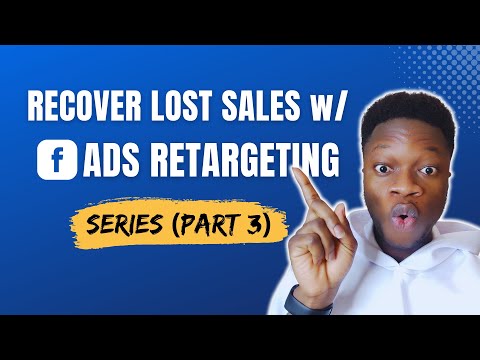Maximize Your Revenue with Retargeting Strategies to Recover Lost Sales

In the fast-paced world of e-commerce, it’s easy for potential customers to get distracted and abandon their carts before completing a purchase. This can be frustrating for businesses, but fear not! There’s a powerful tool at your disposal that can help you recover those lost sales and maximize your revenue: retargeting strategies.
What is Retargeting?
Retargeting is a marketing strategy that allows you to show targeted ads to users who have previously visited your website but didn’t make a purchase. By using tracking pixels and cookies, you can track these visitors as they browse the web and display ads to them on other websites they visit, reminding them of the products they were interested in.
Why Use Retargeting?
Retargeting is a highly effective way to re-engage with potential customers who have already shown an interest in your products or services. By reminding them of what they were looking at on your website, you can encourage them to come back and complete their purchase. Research has shown that retargeting can lead to higher conversion rates and increased sales.
Types of Retargeting Strategies
There are several different types of retargeting strategies that you can use to recover lost sales and increase your revenue:
Standard Retargeting
Standard retargeting involves showing ads to users who have visited your website but didn’t make a purchase. These ads can be displayed on other websites, social media platforms, or through email campaigns.
Dynamic Retargeting
Dynamic retargeting takes things a step further by showing users ads featuring the specific products they viewed on your website. This personalization can help to remind users of the exact items they were interested in and encourage them to make a purchase.
Email Retargeting
Email retargeting involves sending targeted emails to users who have abandoned their carts or visited your website but didn’t make a purchase. These emails can include personalized product recommendations or special offers to entice users to return to your site.
Best Practices for Retargeting Success
To maximize your revenue with retargeting strategies, it’s important to follow some best practices:
- Segment Your Audience: Tailor your retargeting campaigns to different segments of your audience based on their behavior and interests.
- Use Engaging Ad Creative: Create eye-catching ads that grab users’ attention and entice them to click through to your website.
- Set Frequency Caps: Avoid bombarding users with too many ads by setting frequency caps to limit the number of times they see your ads.
- Test and Optimize: Continuously test and optimize your retargeting campaigns to improve their performance and maximize your ROI.

Getting Started with Retargeting
If you’re new to retargeting, getting started is easier than you might think. Many advertising platforms, such as Google Ads and Facebook Ads, offer retargeting options that you can set up quickly and easily. Simply install the necessary tracking pixel on your website, create your ads, and set your targeting parameters to start reaching out to lost leads and driving them back to your site.
The Bottom Line
Retargeting strategies are a powerful tool that can help you recover lost sales and maximize your revenue. By reminding users of the products they were interested in and enticing them to return to your site, you can significantly increase your conversion rates and grow your business. So, don’t let those lost sales slip away – implement retargeting strategies today and start seeing the impact on your bottom line!



